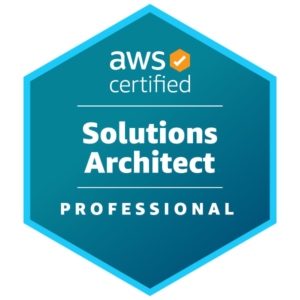How to Pass AWS SA Professional (SAP-C02) certification?

I am very excited to announce that I passed (re-certified) the newer version of the AWS Solution Architect Professional (SAP-CO2) exam. The excitement stems from two things: First, it’s the most recent version of this certification. Second, I just passed this exam after only preparing for seven days!
Preparing for the AWS Certified Solutions Architect Professional (SAP-C02) exam can be challenging but possible. You should have a good grip on AWS Multi account design patterns, and AWS migration is another area you should be well-versed in. And last but not least, nothing can beat real-world experience.
I have been fortunate to work, with great AWS partner organizations, on a wide range of AWS cloud projects in the last few years, which allowed me to dive deep into most of the AWS foundation services covered in the AWS SA professional certification.
Most people start by studying the AWS-certified SA Professional exam guide to understand what AWS services can come in the exam. Before sitting the exam, consider opening an AWS account, taking advantage of AWS free-tier services in your learning process, and work on designing and implementing prototypes like
- Set up a Multi-Account AWS environment, apply governance (Guardrails) to the child accounts and OUs, and enroll new accounts.
- Set up an n-tier web application and play with services like ELBs, auto-scaling, ec2 instances, route53, CloudFront, WAF, and more.
- Build serverless architecture using AWS Lambda, API Gateway, step functions, SQS, SNS, Event Bridge, and more.
- Set up a multi-account multi-vpc environment, including transit gw’s, VPN connection, gateway endpoints, and more.
The more you learn, the more confidence you gain.
What's expected?
The exam validates a candidate’s advanced technical skills and experience in designing optimized AWS solutions that are based on the AWS Well-Architected Framework.
The exam validates a candidate’s ability to complete the following tasks within the scope of the AWS Well-Architected Framework:
- Design for organizational complexity
- Design for new solutions
- Continuously improve existing solutions
- Accelerate workload migration and modernization

I encourage you to learn new AWS services like AWS SageMaker, AWS IoT Greengrass, AWS Textract, Amazon Connect, etc. Some of them (not all) have been nicely captured in the last section of Stephane Maarek’s course material. You can find the comprehensive list of services that can appear in the exam in the exam guide. At least you should know about the AWS services benefits, where to use them in the workloads, benefits, and limitations.
Study Resources
I relied on several sources to help me prepare for the AWS Solutions Architect professional exam. I used study materials, including videos, training platforms, e-books, white papers, faqs, and practice exams. This combination of resources helped strengthen a topic and prepare me for the exam.
Training platforms and Videos
I am lucky to work with a great organization that supports the learning and development of its employees. I have access to many study materials like aCloudGuru, LinkedIn Learning, and Oreilly, among other resources.
Additional resources I bought are Stephane Maarek’s AWS SA Professional exam course from Udemy and a subscription to AWS Skill builder.
- aCloudGuru
- Oreilly
- LinkedIn Learning
- Udemy , Stephane Maarek
- AWS skill Builder – has a lot of free content to sharpen your AWS skills. I took the subscription because this is the only platform providing me access to the SAP-C02 practice exam.
E-books, White Papers, and FAQs
Oreilly Media is a great learning platform for e-books, online training, and video. You can gain technology and business knowledge and hone your skills with learning resources created and curated by O’Reilly’s experts.
Once you have learned and are confident about AWS services, I recommend reviewing the updated set of AWS Well-Architected Framework White Papers
AWS Services FAQs are the place to find answers to many common questions about the service and its limitations, benefits, and other details.
Practice Exams
It is always good to validate your strengths and weaknesses before taking the exam. To do this, you can review the questions and answers on the sample exam on AWS Skill builder and Mock exam on various learning platforms. It will give you a clear picture of what domain areas you are good at and what domain areas or topics you need to strengthen.
You can find Mock exams with all of the learning platforms. But take advantage of the AWS skill builder official practice exams. While writing the blog, this is the only exam was based on the newer version of the AWS Solutions architect SAP-C02 exam guide. (All other training platforms are catching up on the practice exams)
Wrap-Up
Thank you for taking the time to read this post and learn more about how you can pass the AWS Solutions Architect Professional Certification. Here are some important tips to help you achieve your goal: Practice as much as possible in various ways. Do scenarios and practice questions from different sources, as these are the best way to strengthen your knowledge. These study materials will be helpful tools during your preparation period and throughout your studies. Keep practicing, and keep learning, and I wish you success!